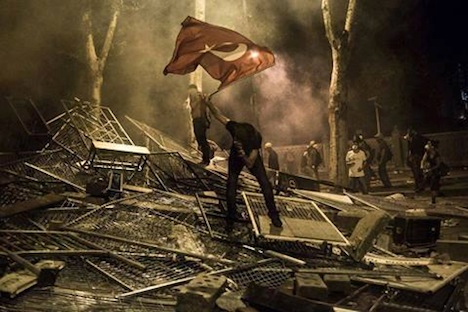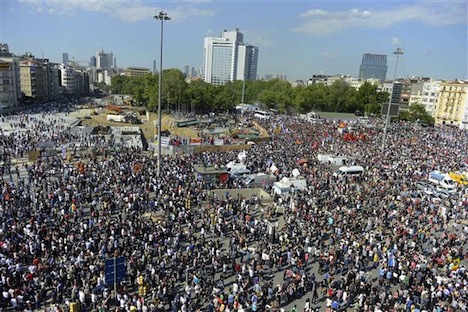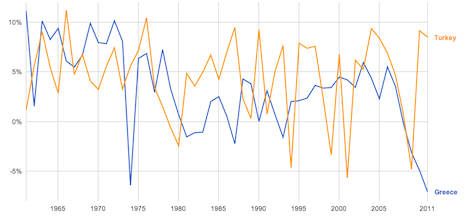No country on the planet has quite tried to tip-toe so selectively into the modern world like the Buddhist kingdom of Bhutan, a landlocked nation at the foothills of the Himalayas between northeastern India and Chinese Tibet. ![]()
For a country that permitted television and internet only for the first time in 1999, Bhutan has gently turned from an absolute monarchy to a form of constitutional monarchy, beginning in 2008 with the enactment of a formal constitution and the first-ever elections in the country’s history.
Voters in the small country, with around one million residents, voted for a new parliament for just the second time in Bhutanese history on Friday in the first round of a two-part vote — and with results back by mid-day Saturday, Bhutan’s election commission proved that it could tally election results faster than the Italian authorities counted last week’s Rome municipal election. That’s measurable progress for Bhutan — despite the country’s notoriety for measuring ‘Gross National Happiness,’ its reputation as a high-end tourism destination and, all too often, a one-dimensional international image as a ‘Buddhist Shangri-La,’ it’s hardly without its challenges.
Following the first of two rounds of parliamentary elections on May 31, the top two parties will advance to a second round later on July 13 to determine the composition of the country’s Gyelyong Tshogdu (National Assembly), a 47-member body that comprises the lower house of the Bhutanese parliament. Members of the 25-seat Gyelyong Tshogde (National Council), the upper house, were determined earlier in April.
The governing Bhutan Peace and Prosperity Party (Druk Phuensum Tshogpa, DPT, འབྲུག་ཕུན་སུམ་ཚོགས་པ) and the opposition People’s Democratic Party (PDP, མི་སེར་དམངས་གཙོའི་ཚོགས་པ་) will advance to those runoffs after seeing off two new parties in Friday’s first round.
The Bhutanese government serves under the monarchial guidance of Bhutan’s Druk Gyalpo (འབྲུག་རྒྱལ་པོ, its ‘dragon king’), the country’s monarchical head of state, who since 2008 has been the youthful Jigme Khesar Namgyel Wangchuck (pictured above, left). Though Bhutan has been a unified and independent country since the 18th century, the current monarchy dates back to only 1907, and prior to the institution of the House of Wangchuck as the hereditary monarchy, Bhutan had a dual system of government between secular and religious authorities. Although the British treated Bhutan as a semi-colonized entity and, from 1949 until 2007, India ostensibly guided Bhutanese foreign relations as a formal matter under the Indo-Bhutan Friendship Treaty, Bhutan has in practice been essentially independent since its unification as a nation in the 1700s.
Bhutan’s previous king, Jigme Singye Wangchuck, took steps upon his coronation in 1972 to bring Bhutan into the modern world only a year after it formally joined the United Nations. He’s most well-known perhaps globally for coining the concept of ‘Gross National Happiness,’ a subjective alternative to strict economic measures like gross domestic product growth and other vectors of development. The ‘Gross National Happiness’ standard tries to incorporate economic development alongside spiritual development in line with Buddhist teaching — notably through sustainable development, environmental conservation, the promotion of cultural values and good governance.
Those standards, however, have led to results that might seem incongruent under Western standards of good governance. While Jigme Singye Wangchuck ultimately paved the way to greater democracy through the introduction of constitutional monarchy, he also introduced a national dress code in 1990, mandating that every Bhutanese citizen wear national dress — a gho, a colorful three-quarter robe, for men, and a kira, a full-body version, for women. It’s also led to the government excluding Nepalese minorities (many of whom are Hindu, not Buddhist) in Bhutan, the Lhotshampa, from the country in the 1990s, many of whom still remain in refugee camps in Nepal under United Nations supervision, rejected from citizenship by either Bhutan or Nepal. Finding a lasting solution for the remaining refugees should be one of the next Bhutanese government’s top priorities. In addition, the Lhotshampa who remain in southern Bhutan remain subject to the same laws as the Bhutanese majority, including cultural laws and universal education in the dominant Dzongkha language, despite the fact that the Lhotshampa speak Nepali instead. In many cases, Bhutan’s government continues to deem them illegal immigrants. Continue reading Bhutan holds only its second election in history with initial round of parliamentary vote



